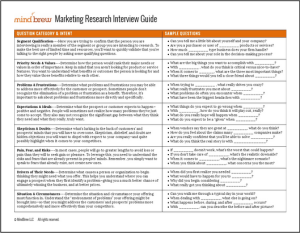When you’re close to a situation, recognizing that you are making a mistake can be very difficult. But from our 10,000-foot-view as observers of the sales ops profession, we find it pretty easy to spot missteps. In fact, we often see the same mistakes repeated over and over again.
This insidious thing about these common mistakes is that they seem like minor errors. Simple oversights. But in reality, they often contribute to much deeper issues that create further challenges down the road.
Here are seven of the biggest blunders we see B2B sales ops teams make:
- Avoiding Bad News – Sales Ops has deep familiarity with a lot of information that can allow it to be the canary in the sales mine. But that only happens when sales ops proactively raises issues. Not only that, you need to go a step further and offer analysis of what caused the issue and potential solutions. Fortunately, while being the bearer of bad news is a tough burden to bear, sales ops has the good fortune of rarely being the cause of the bad news — unless you fail to raise an issue. For advice on how to do so effectively, check out Delivering Data to Decision-Makers.
- Waiting Until You’re Asked to Show Results – If you’ve been asked to prove the value of the function or show results from your team’s efforts, you have a problem. And it might be too late to correct misperceptions within your organization. Instead of waiting to be asked, stay ahead of any concerns or doubt by monitoring results and presenting them to management. To learn how, see Demonstrating the Value of Sales Operations.
- Focusing on the Top Salespeople – The most effective salespeople tend to get a lot of attention (and love) from leadership — and, in turn, they often command extra support from others in the organization. But if you want to boost sales results, you can’t spend all your energy on the people who don’t really need help. Instead, concentrate on the “meaty middle” where the best opportunity for improvement is. We cover this in more depth in Moving the “Meaty Middle.”
- Letting New Reps “Figure It Out” – When you bring on new reps, you want to get them selling as much as possible as quickly as possible. If you don’t effectively onboard new team members, you not only slow down their productivity and hurt the bottom line, but you can end up poisoning any accounts they’re working with. To do it the right way, watch More Effective Onboarding.
- Seeing Sales Ops as a Tactical Function – Many of us in sales ops recognize it as a strategic role in the organization. But it’s very easy for others to see it as a tactical function. That can lead to an endless stream of tactical assignments as the team careens from one emergency to the next. Sales ops can only live up to its full potential by putting in the necessary effort to play its strategic role and getting others to see it that way. To learn from how other teams have made the switch, check out From Tactical to Strategic Sales Ops.
- Developing Optimistic Compensation Plans – If you don’t play devil’s advocate when developing your sales comp plan, we can almost guarantee that you’ll regret that plan later on. You’ve got to anticipate the actions sales will take to maximize their own pay and commissions. When that isn’t aligned with the company’s top and bottom line, it’s a recipe for disaster. You can learn how to avoid some of the biggest mistakes from Improving Sales Compensation to Boost Results.
- Not Recognizing the Full Sales Process – Every sale your company makes is the result of a process with many intermediate steps. It’s easy to get stuck tweaking or fixing some of those steps and lose sight of the bigger picture. Maybe those steps we’re fixing shouldn’t exist at all. Or maybe if we fixed something else upstream from the problem, the problem would go away. In just about every sales process, you can achieve huge results with very small tweaks that can yield huge results. Find out how in How to Optimize Your Sales Funnel
Of course, there are plenty of other mistakes out there. But if you can avoid these seven, you’ll be well on your way to realizing your team’s full potential.


















